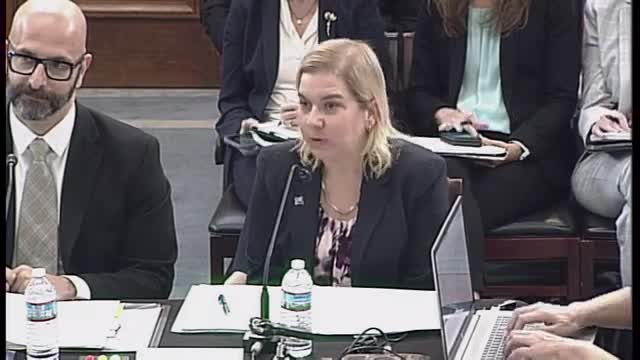CDC Faces Scrutiny Over Data Gaps and Public Health Response
July 24, 2024 | Energy and Commerce: House Committee, Standing Committees - House & Senate, Congressional Hearings Compilation

This article was created by AI summarizing key points discussed. AI makes mistakes, so for full details and context, please refer to the video of the full meeting. Please report any errors so we can fix them. Report an error »

In a recent government meeting, officials discussed critical issues surrounding public health data access and the Centers for Disease Control and Prevention's (CDC) response capabilities. The dialogue highlighted the urgent need for improved funding and data systems to enhance national situational awareness and early threat detection, particularly in light of the ongoing opioid crisis and the lessons learned from the COVID-19 pandemic.
One key point raised was the CDC's historical underinvestment, which has resulted in significant delays and gaps in essential health data. Officials emphasized that while recent funding related to COVID-19 has led to progress, sustained investment is necessary to modernize public health systems at both state and local levels. The conversation underscored the importance of reliable data for predicting viral outbreaks and tracking disease trends, with calls for better data authorities to address the current reliance on voluntary reporting.
Concerns were also voiced regarding the CDC's coordination with other federal agencies during public health emergencies. A notable incident involving an illegal bio lab in California raised questions about the clarity of roles among agencies like the CDC, FDA, and local health departments. Lawmakers expressed frustration over the lack of timely federal response when local authorities sought assistance, highlighting the need for a more defined protocol for emergency situations.
Additionally, the meeting touched on the CDC's focus areas, including mental health, maternal health, and vaccination access, as part of its broader mission to protect American health. The discussions reflected a bipartisan concern for the effectiveness of public health responses and the necessity for a cohesive strategy to tackle emerging health threats.
As the meeting concluded, officials committed to submitting further questions in writing, indicating ongoing scrutiny and a desire for accountability in public health management.
One key point raised was the CDC's historical underinvestment, which has resulted in significant delays and gaps in essential health data. Officials emphasized that while recent funding related to COVID-19 has led to progress, sustained investment is necessary to modernize public health systems at both state and local levels. The conversation underscored the importance of reliable data for predicting viral outbreaks and tracking disease trends, with calls for better data authorities to address the current reliance on voluntary reporting.
Concerns were also voiced regarding the CDC's coordination with other federal agencies during public health emergencies. A notable incident involving an illegal bio lab in California raised questions about the clarity of roles among agencies like the CDC, FDA, and local health departments. Lawmakers expressed frustration over the lack of timely federal response when local authorities sought assistance, highlighting the need for a more defined protocol for emergency situations.
Additionally, the meeting touched on the CDC's focus areas, including mental health, maternal health, and vaccination access, as part of its broader mission to protect American health. The discussions reflected a bipartisan concern for the effectiveness of public health responses and the necessity for a cohesive strategy to tackle emerging health threats.
As the meeting concluded, officials committed to submitting further questions in writing, indicating ongoing scrutiny and a desire for accountability in public health management.
View full meeting
This article is based on a recent meeting—watch the full video and explore the complete transcript for deeper insights into the discussion.
View full meeting